Finding where greatness is born
Published on February 16th, 2022
Paul Cayard, as the new executive director of US Olympic Sailing, is committed to returning the United States to Olympic dominance, a position the country once held. But while Cayard focuses on the pieces of that chess set, could he be fighting a cultural shift in US sailing?
Chris Bulger, as President of Narraganset Adult Athletic Sailing Association, thinks so and details the critical points on how to address the US fall from relevance at the top of our sport:
My point of view is shaped by the two following observations. In the US, adult sailors have moved away from the Athletics end of the sport – dinghies, catamarans, etc. Internationally, the top end of the sport has become more…… athletic. We have gone one direction while the sport has move in the other.
For starters, we can restructure junior and college sailing all we want, but American adults have abandoned the athletic end of our sport in favor of keel boat racing. US adult sailors just don’t want to sail without lead.
It’s an old saw of mine – but just look at one of our sailing capitols – Narragansett Bay in Rhode Island. There are zero dinghy clubs or yacht clubs with active adult dinghy fleets. That’s a priority and resource statement. That means there are no homes for athletic sailors. No dedicated boat parks to wander and learn. No fleets to watch and wish you could join.
Next, most of the greatest sailors internationally were not extruded from some “bold plan” program run by national governing body or a college. Those programs help, but we need to look further up the funnel to find where greatness is born. We have a clear example here in the US – Cayard’s best hope for a medal (gold at that) is Daniella Moroz.
Daniella became great long before US Sailing had even heard of her. Following in her parents ‘windsurfing and kiting footsteps, she was exposed to kiting as a kid, fell in love with the sport, had access to equipment, water and older kiters to play with, and just did what she loved for many many hours. We need adults inspiring kids locally and kids need access to water and peers to play and fall in love.
Finally, falling in love is fun, but staying in love requires resolve and toughness to overcome many headwinds. What I mean is – to become truly great at anything requires the passion and toughness to press on. High performance sailing is more physically demanding and requires more hands-on boat work than anything Americans do in junior or college sailing.
The popular US youth boats – Optimists, Club 420s, FJs – don’t prepares an athlete for the challenge of a Nacra 17. Sure, we have had great Americans in tip top shape in all those classes, but any average sailor can get one of those boat around the harbor. The new high-performance boats demand high-level athleticism to operate.
Toughness isn’t just about athleticism; high-performance boats demand a ton of tuning and boat work – actually, Olympic class boats have always required these skills. If you don’t have the skills and passion to prep your own boat, you can’t sail it to its potential. We have evolved our junior and college sailing into concierge sailing. You can rise to the top without going to the gym or doing an epoxy repair.
The US format for junior sailing and college sailing allow for broad participation, which is very positive, but they are not funnels to create Olympians. Building that funnel requires US adults to start prioritizing and participating in athletic sailing.
Our “problem” is at the fat end of the funnel. We need existing yacht clubs to prioritize resources for adult athletic sailing. Give priority to space and resources for your centerboard fleets. We also need new dinghy clubs dedicated to this part of the sport.
If American grown-ups don’t want to participate in the athletic sailing, how can we expect to produce Olympic, America’s Cup, or SailGP winners. Time to take a break from your lead mine.


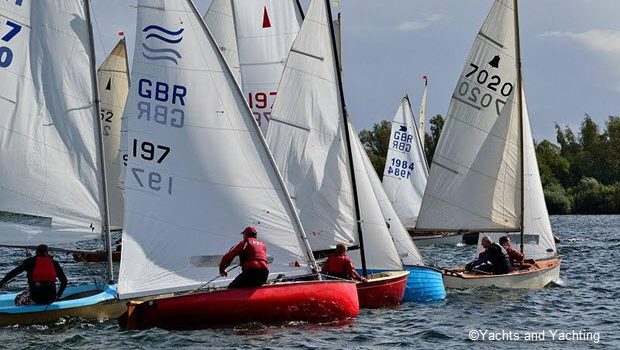


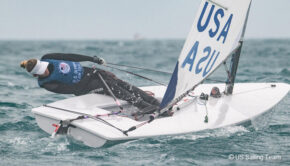
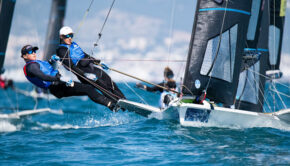
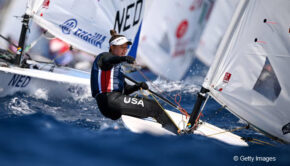
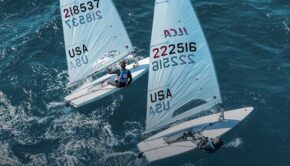
 We’ll keep your information safe.
We’ll keep your information safe.